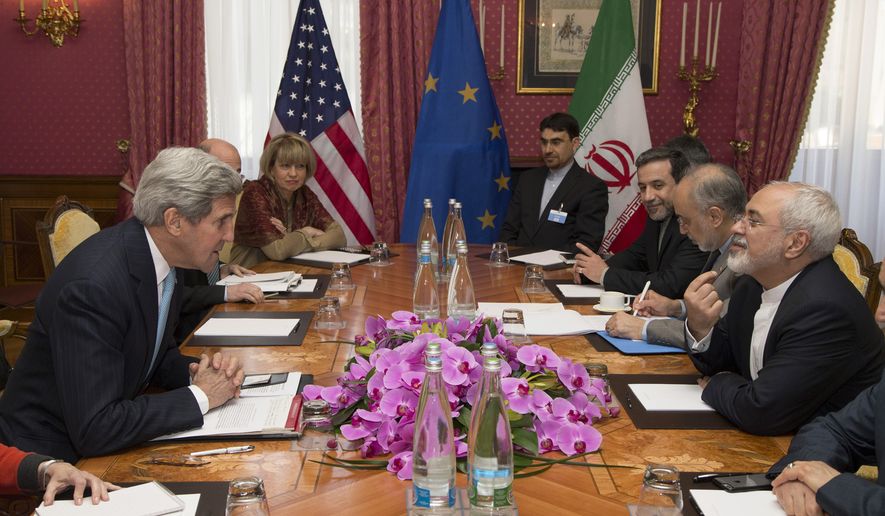OPINION:
The President believes that if Iran is diplomatically treated with the same trust and respect afforded to responsible governments that Iran will somehow suddenly begin to conduct its affair in a responsible and rational manner.
I disagree: My belief is that the Iranian government cannot be trusted and is based upon my personal experiences in the Middle East. Simply put, as long as Iran legitimizes state-sponsored terrorism, publicly states that Israel has no right to exist, and continues to develop delivery systems that can target Israel (as well as its regional neighbors) that it cannot be trusted to negotiate, in good faith, an agreement to give up its quest for a nuclear arsenal.
The conduct of this authoritarian theocracy has not changed since November of 1979 when the newly established Islamic Republic of Iran allowed the seizure of the U.S. Embassy in Tehran and held 52 American hostages for 444 days. Only months later, in the fall of 1980, I was deployed off the coast of Iran as a rifle platoon commander in a battalion landing team, prepared to deal with Iranian threats to shut down shipping lanes in the Strait of Hormuz. Iran did not shut those sea lanes down, but not because of any concern for the world’s economy or a recognition that responsible governments don’t cut off the world’s fuel supplies. No, the reason Iran held back was the presence of an American military force backed by a credible threat of its use.
In August of 1982, I transferred from active duty to the Marine Corps Reserve and returned to Colorado. The following year, the battalion I had previously served in off the Strait of Hormuz was ordered to take up positions at the abandoned airport in Beirut, Lebanon. On October 23rd, 1983, a truck, laden with explosives and driven by an Iranian-backed Hezbollah fighter, drove into the building that provided the offices and billeting for the headquarters’ staff. The building collapsed in the explosion killing 241 Marines making it the largest loss of life, in a single day, for the U.S. Marine Corps since WWII. Many of those Marines were my friends and colleagues and I have not forgotten them.
My point is that Iran’s threats should not be taken lightly. They have taken American lives before and won’t hesitate to do so again if they think they will not suffer significant harm from doing so.
More recently, in June of 2005, I took a military leave from the office of Colorado State Treasurer to return to the U.S. Marine Corps for an assignment in Iraq. The vast majority of U.S. casualties at that time were from roadside bombs or “Improvised Explosive Devises” (IED’s). To better protect our troops against IED’s, the exterior metal armor of our vehicles consistently increased. However, in 2007, a much more sophisticated and lethal “Explosively Formed Projectile” (EFP), that could easily penetrate the enhanced armor of U.S. military vehicles, made its way into Iraq. The EFPs were provided by Iran specifically to kill U.S. military personnel serving in Iraq and they, unfortunately, did just that.
President Obama sees Iran as he wants it to be and those of us who served in the region see Iran for what it is – a murderous regime that wants to wipe Israel off the map and continues to provide support to terrorist groups across the globe.
President Obama threw a life-line to the leadership of Iran when he unilaterally reduced sanctions merely to bring them to the negotiating table. The only realistic path to stop Iran from obtaining a nuclear weapon is to impose economic sanctions that are so severe that the leadership of the country concludes that unless it agrees to dismantle its nuclear weapons program that Iran will face economic collapse threatening the continued rule of the “mullahs.”
Instead the President has chosen to trust Iran’s extremist leaders. I do not.
U.S. Representative Mike Coffman sits on the House Armed Services Committee. He has a combined 21 years of military service and is a veteran of the first Gulf War and the Iraq War.




Please read our comment policy before commenting.